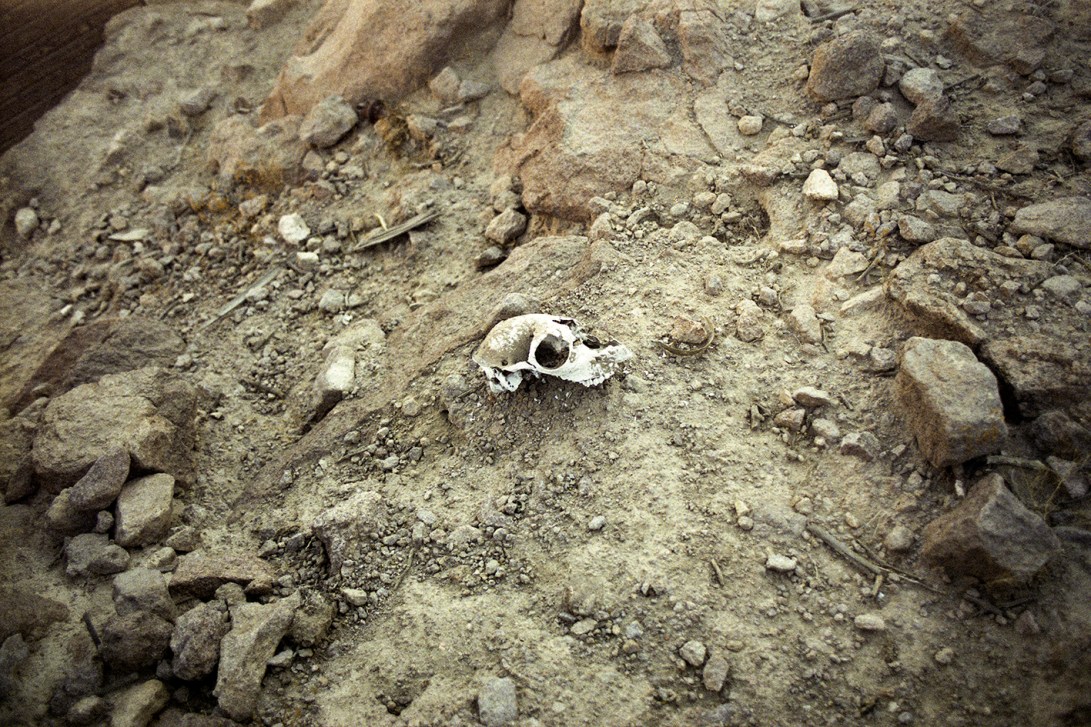
June’s featured photographer is Catalina Juger Cerda
Catalina Juger Cerda (1990) Chilean photographer. In 2011, she started to study photography at Instituto Profesional ARCOS (Chile), and in 2016, she began her studies in documentary cinema. Through documentary photography, she has been working her projects around themes related to sex-affective relationships, territory and body under a political and poetic perspective.
At the same time, Catalina’s work focuses on the creation of landscapes that are linked to the sense of journey and emotions, all looking into a world where reality and fiction intermingle. She has published two photobooks “El eje en la luna” and “Vigilia”, the first after being awarded a scholarship by the National Arts Fund – FONDART (Chille) and the second, after being awarded “Lost Luggage II” prize by the publishing house Editorial La Visita (Chile).
Her work has been exhibited in Chile and overseas. In addition, her short film “La Mujer de Atrás” has been presented at the Women’s Film Festival – FEMCINE and the Festival de La Habana – 2017, among other festivals.
El eje en la luna (The axis on the moon)
El eje en la luna (The axis on the moon) tells the story of four women living in four different points of Chile. North, South, East and West; desert, forest, mountain and seacoast are the geographical elements that accompany these characters, who live far from cities by choice or condition.
The crossings between body, territory, power and resistance pose the axis by which this project is aligned and whose particularity is the coexistence with the places where they live in, far from the city, highlighting the autonomy and coexistence that they show with their territories.
Through this project, we think about the notions of survival and the resistance that stand to coexist in these landscapes. These four protagonists contribute to worlds, that many times, are alien to our daily life, which unfold under their own rhythm.
To view more on Catalina’s work, here
La fotógrafa del mes de Junio es Catalina Juger Cerda
Catalina Juger Cerda (1990) fotógrafa chilena. En el año 2011, entra a estudiar Fotografía al Instituto Profesional ARCOS y en el 2016 estudia Cine Documental. A través de la fotografía documental ha ido circundando sus proyectos alrededor de temáticas relacionadas a las relaciones sexo-afectivas, el territorio y el cuerpo bajo una perspectiva política y poética.
Paralelamente trabaja con la creación de paisajes e imágenes que están ligados a ejercicios de atención y que se componen por el viaje y sensaciones, todo donde una mirada al mundo en donde la realidad y la ficción se entremezclan. Ha publicado dos fotolibros “El eje en la luna” y “Vigilia”, el primero luego de ser becada por el Fondo Nacional de Artes – FONDART y el segundo tras ser la ganadora de la convocatoria “Equipajes perdidos II” de Editorial La Visita.
Su obra ha sido expuesta en Chile y el extranjero. Además, su cortometraje “La Mujer de Atrás” ha sido presentado en el Festival de Cine de Mujeres – FEMCINE y en el Festival de La Habana – 2017, entre otros festivales.
El eje en la luna
Proyecto fotográfico iniciado el año 2014 que relata la historia de cuatro mujeres que viven en cuatro puntos de Chile.
Norte, sur, este y oeste (desierto, bosque, cordillera y mar) son los lugares que acompañan a estas personajes, quienes viven lejos de las ciudades por opción o condición.
Los cruces entre cuerpo, territorio, poder y resistencia plantean el eje por el cuál va alineado este proyecto y que tiene como particularidad la convivencia con los lugares en los cuales viven, lejos de la ciudad, destacando la autonomía y convivencia que muestran con sus territorios. Pensamos en la sobrevivencia y la resistencia que viven al coexistir en estos paisajes.
Estas protagonistas aportan un viaje a mundos, muchas veces, ajenos a nuestra cotidianidad, que se desenvuelven bajo su propio ritmo.
Para ver más de los trabajos de Catalina, aquí
